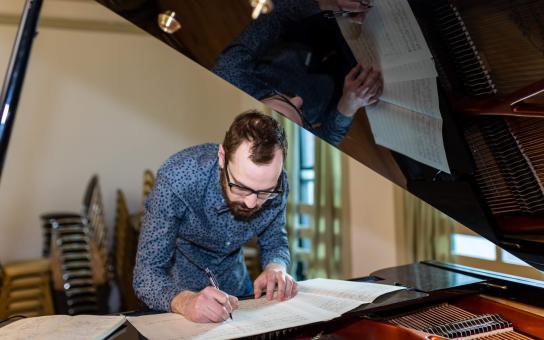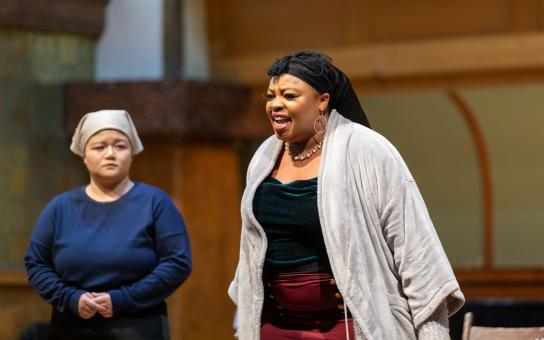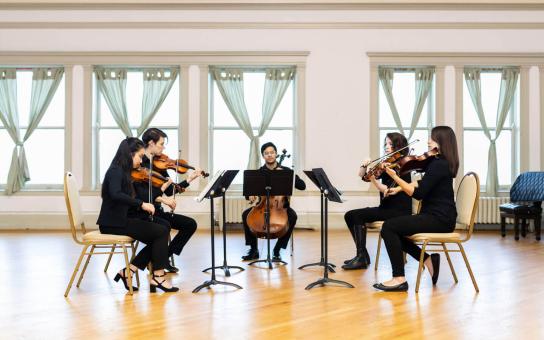Bachelor's in Musical Arts, BMA
The BMA is CCPA’s most flexible degree, with every BMA selecting a primary area of study in one of our instrumental, vocal or composition studios in addition to a secondary area of study outside of music. The possible combinations are many and varied: theatre or arts administration; existing areas of study in Roosevelt’s other colleges; or customized combinations.
Why Roosevelt for your Musical Arts Program

Access to Honors Program Resources
The BMA is CCPA's only degree that is affiliated with the Roosevelt University Honors Program. Students admitted to this degree are simultaneously admitted to the Honors Program. As members of the Honors Program, BMA students have access to reserved seminars and special topics courses with Honors students from other degrees and majors across the University.

Connections with Industry Professionals
Throughout your degree you also participate in a weekly BMA Colloquium in which you discuss literature and topics related to music, but that are not a part of most undergraduates’ experiences. BMA students have visited with the Chairman of the Board of the Metropolitan Opera Guild, the Chair of the American Bar Association’s Forum on Entertainment Law, music librarians, instrument curators, theorists and authors from other areas who raise provocative questions about the role of music in society.

A Strong Alumni Network
Alumni from this program go into further graduate training or directly to careers and thrive in the vast range of opportunities in the performing arts, including as performers and composers, but also as fundraisers, arts managers, authors, instrument technicians, music scholars, music librarians and music therapists.
